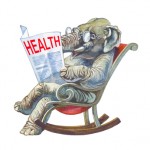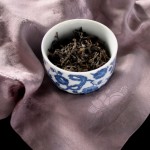I wanted to examine the possible health benefits of chocolate further and found myself immersed in nutritional and biochemical articles. So now I've slogged though eight different sources, ranging from a University of Mumbai review of health benefits of some of the chemicals in chocolate (and green tea, onions, red wine and apples) to three nutrition journals, a WebMD piece on antioxidants and a Harvard School of Public Health article titled, "Antioxidants: Beyond the Hype."
There's a concept known as the French paradox, first popularized in a 1991 segment on CBS's show, "Sixty Minutes." The French eat chocolate and cheeses and drink red wine, yet their obesity rate is the lowest in Europe, and although they smoke and eat a moderately high-fat diet their cardiovascular death is also fairly low. Those statistics are worsening as the invasion of the Western Diet spreads through the country, but they still hold true.
Let's concentrate on chocolate for now and I'll return to that paradox some other time
In simplest terms I think of atoms as being like tiny solar systems with a sun (the nucleus) in the middle and "planets," electrons circling around. The center has relatively large particles with no charge (neutrons) and positive electrical charges (protons); the shells have tiny particles with negative charges (electrons). The latter are not just arranged in orbits like planets; a closer analogy would be Russian Nesting Dolls.
When you eat, your body uses glucose for fuel. In doing so it produces some extremely harmful molecules called free radicals. These are atoms with an electron missing and they try to regain electrical balance by stealing negatively charged particles from other atoms. You can also pick up free radicals from air, food or sunlight's effect on your skin. They can harm your DNA, cause "bad cholesterol' to get stuck in the wall of a blood vessel, or speed up the aging process of your skin.
We do have some defences against those nasty free radicals and they're called antioxidants. A variety of studies done on these chemical weapons have yielded inconclusive results, but one long-term study, part of the Physicians Health Study, appeared to show a significant benefit in cognitive function and another showed a decrease in the risk of heart attacks in men aged 50 or older.
Even these mixed results led to a huge antioxidant supplement industry with sales estimated over $500 million a year.
We're much better off, many think, consuming natural sources, especially fruits and vegetables and red wine (not beer or white wine).
And now there's chocolate. Dark, bitter chocolate appears to lower blood pressure, improve blood flow and improve insulin sensitivity. Dean Ornish's Newsweek article, mentioned in my last post, says there's four times as much cocoa flavonoids per serving than in red wine or tea.
Tags: antioxidants, chocolate, flavonoids, free radicals


